In addition to Weibo, there is also WeChat
Please pay attention

WeChat public account
AutoBeta


2024-11-17 Update From: AutoBeta autobeta NAV: AutoBeta > News >
Share
AutoBeta(AutoBeta.net)05/20 Report--
In recent years, under the background of the rapid development of the new energy vehicle market, it has gradually become the first choice for consumers to buy cars, but at the same time, there are more and more complaints about new energy vehicles. On May 19th, the Consumer Protection Commission of Jiangsu Province released the investigation report on unfair format terms in the New Energy Automobile Industry. In the survey, 14 new energy vehicle companies (BYD, Changan, Great Wall, GAC Eian, Jihu, Geely, ideal, Chery, SAIC GM Wuling, Tesla, Weima, Xiaopeng) were collected, and the question rate of Weima was as high as 60%. Generally speaking, some new energy vehicle companies generally consider only their own interests when formulating format contracts, and fail to implement the relevant laws and regulations, and some of the provisions are obviously unreasonable and unfair to consumers.
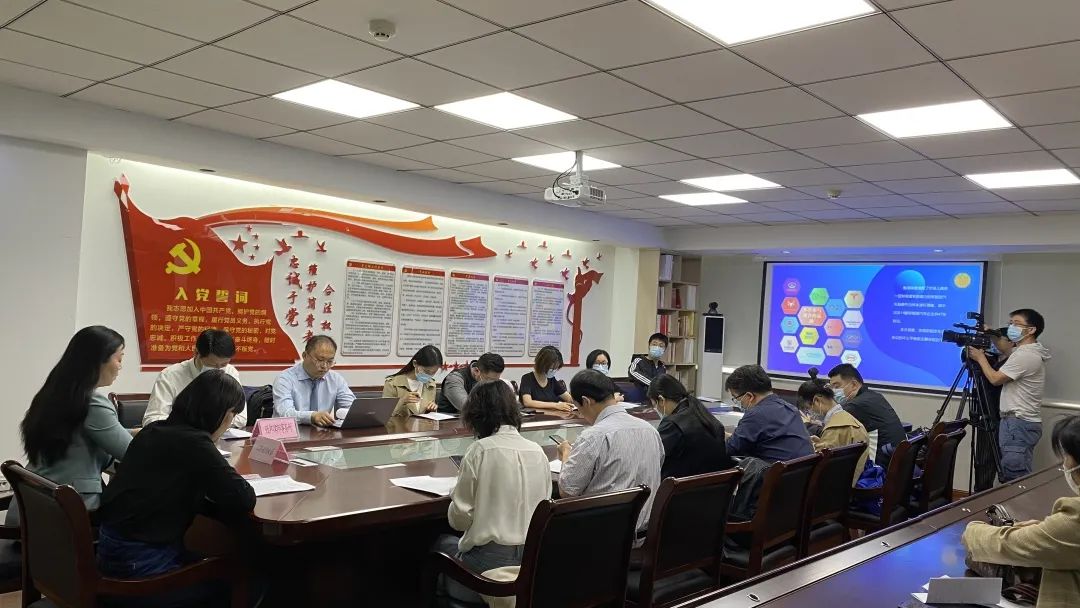
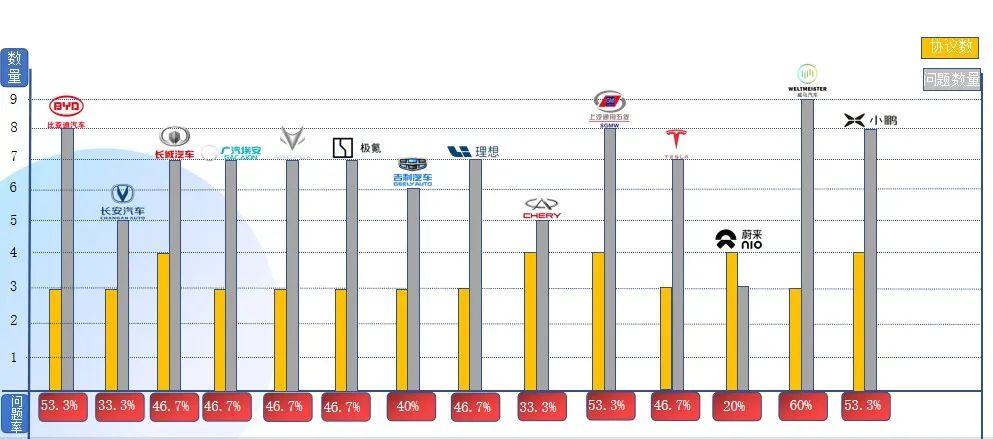
The main provisions relating to inequality are as follows:
First, the object of the agreement transaction is unknown, which damages consumers' right to know. According to the survey, when many automobile companies made the agreement, they all made it clear that the car company's name was a single subject, but extreme krypton, Geely, ideal, NIO, Weima, and Xiaopeng wrote all the affiliated enterprises or third parties involved in the service as the parties to the agreement, but did not specify the names of the parties. SAIC GM Wuling and Tesla only use abbreviations.
Second, there is no restriction on the right of unilateral amendment of automobile enterprises, which infringes upon consumers' right of independent choice and fair trade. Changan, Great Wall, GAC Ean, Jihu, Geely, SAIC GM Wuling, Tesla, Weima and Xiaopeng set up unilateral modification rights in the agreement, while exempting consumers from the obligation to notify consumers separately, and there are no restrictions on the principle and purpose of unilateral modification. When the car company modifies the user agreement, consumers can neither understand the modified content in advance, nor negotiate on the modified content, and must accept the modified content, otherwise they will be required to withdraw from use.
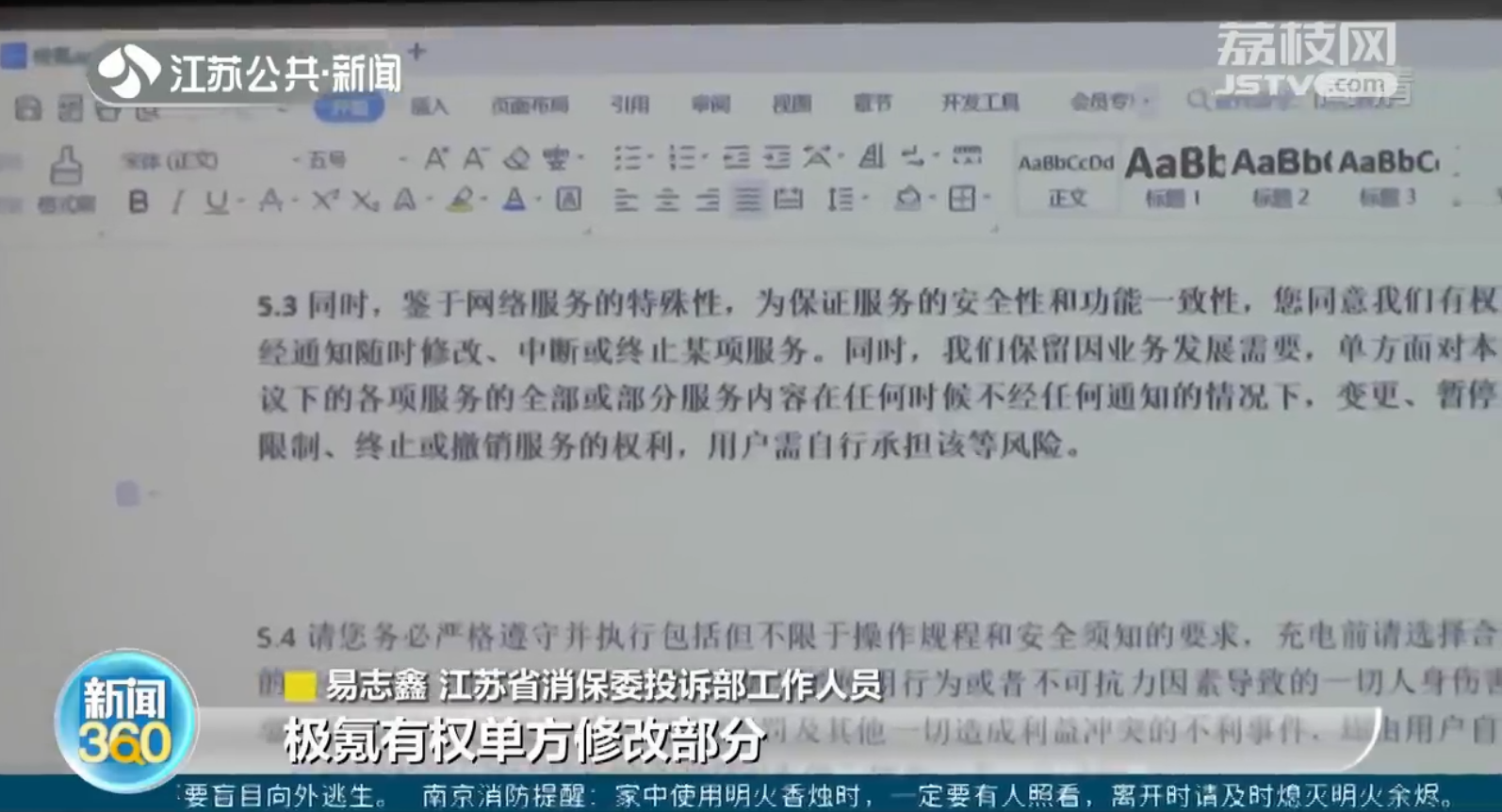
Third, the exemption clause of automobile enterprises is too wide, which increases the responsibilities and obligations of consumers. The exemption clauses of BYD, Changan, Great Wall, GAC Eian, Jihu, Polar Krypton, ideal, SAIC GM Wuling, Weima and Xiaopeng are too broad, including service content termination exemption clause, network security loophole exemption clause, product and service risk exemption.
Fourth, the collection of personal information is not standard, consumers are required to agree generally. There are a large number of cases of irregular collection of personal information in the agreements of many automobile companies. first, it violates the principle of default non-collection. Tesla and Xiaopeng take "default collection" as the principle in their agreement. Second, it is obviously unnecessary to collect personal information. BYD, GAC Ean, Jihu, Chery, SAIC GM Wuling and Weima have collected detailed communication records, friend contact lists, schedule information, property information, Internet records, common equipment information and other contents collected by the agreement terms of BYD, GAC Ean, Jihu Fox, Chery, SAIC GM Wuling and Weima.
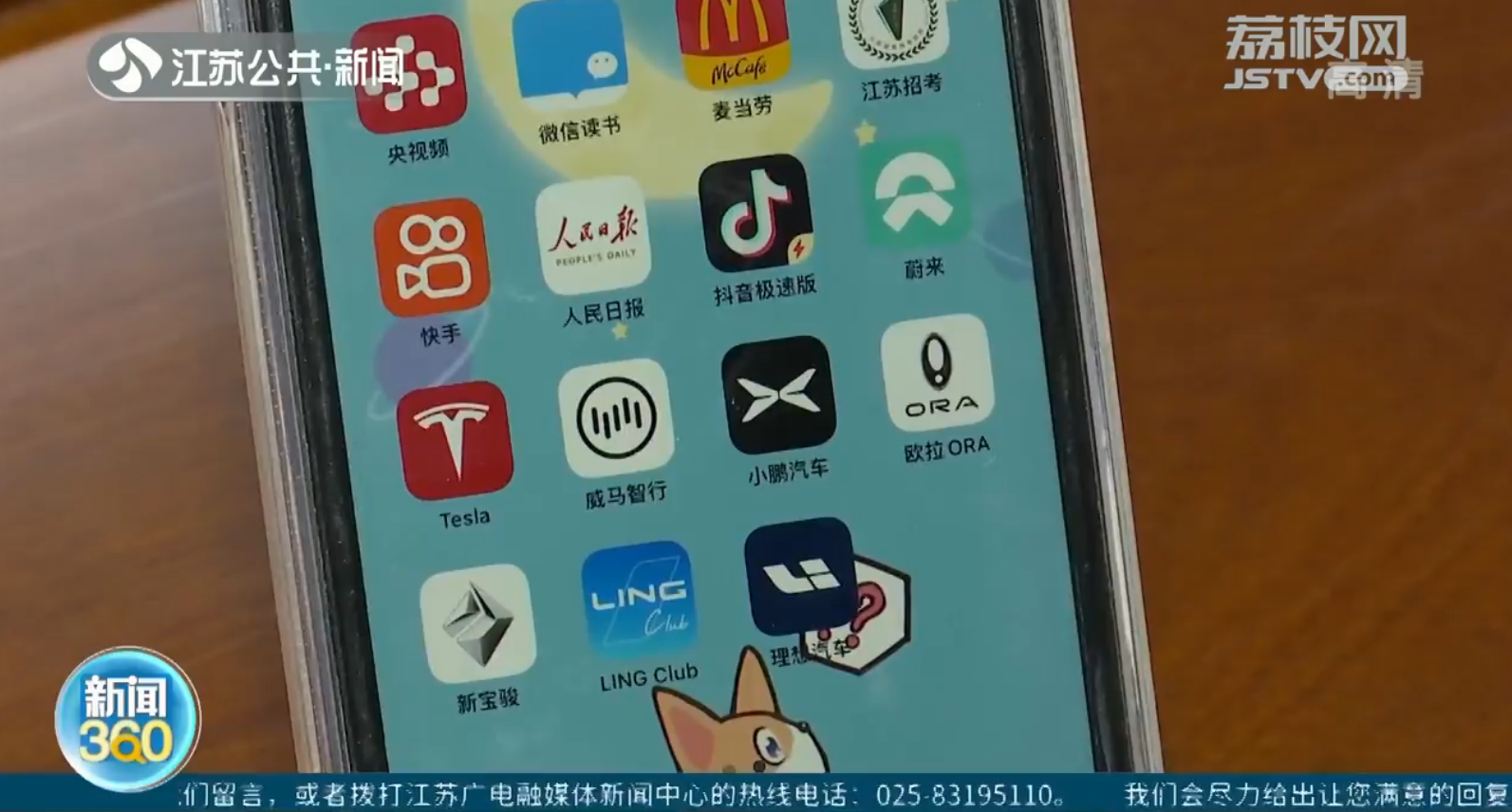
Fifth, the improper use of personal information, the absence of consumer personal information protection. Some of the agreements are not in line with voluntary authorization, the principle of legitimate necessity and information security. First, the use of personal information is suspected of excessive commercial use. The agreements of BYD, Changan, GAC Ean, Polar Krypton, Geely, Chery and Tesla stipulate that car companies can use the collected user information to form user profiles and display and push goods or services to users. Changan's agreement stipulates that car companies can commercialize the user database. Second, personal information should not leave the country without separate consent, and if it is provided to overseas recipients, relevant information should be informed and individual consent should be obtained. However, the agreements of BYD, Great Wall, Geely and Tesla directly contain provisions that may be shared abroad.
Sixth, the agreed response time is too long to meet the actual needs of consumers. First, the query and reply is not timely. The vehicle location and track related data collected by NetLianhua can not be saved for more than 7 days in the vehicle storage equipment and remote information service platform (TSP), while BYD, Great Wall, Polar Fox, Polar Krypton, ideal, Chery and Xiaopeng respond to users' requests to consult and copy their own personal information within 15 to 30 days. Consumers may not be able to copy the information because of delays in response from car companies. Second, the deletion of personal information is not timely, the deletion of personal information of car data has been clearly regulated, and if an individual requests to delete it, the automobile data processor shall delete it within 10 working days, but there are still agreements that will not be deleted in a timely manner, including BYD, ideal, Weimar, which cannot delete provisions within the prescribed time limit in accordance with the statutory requirements.
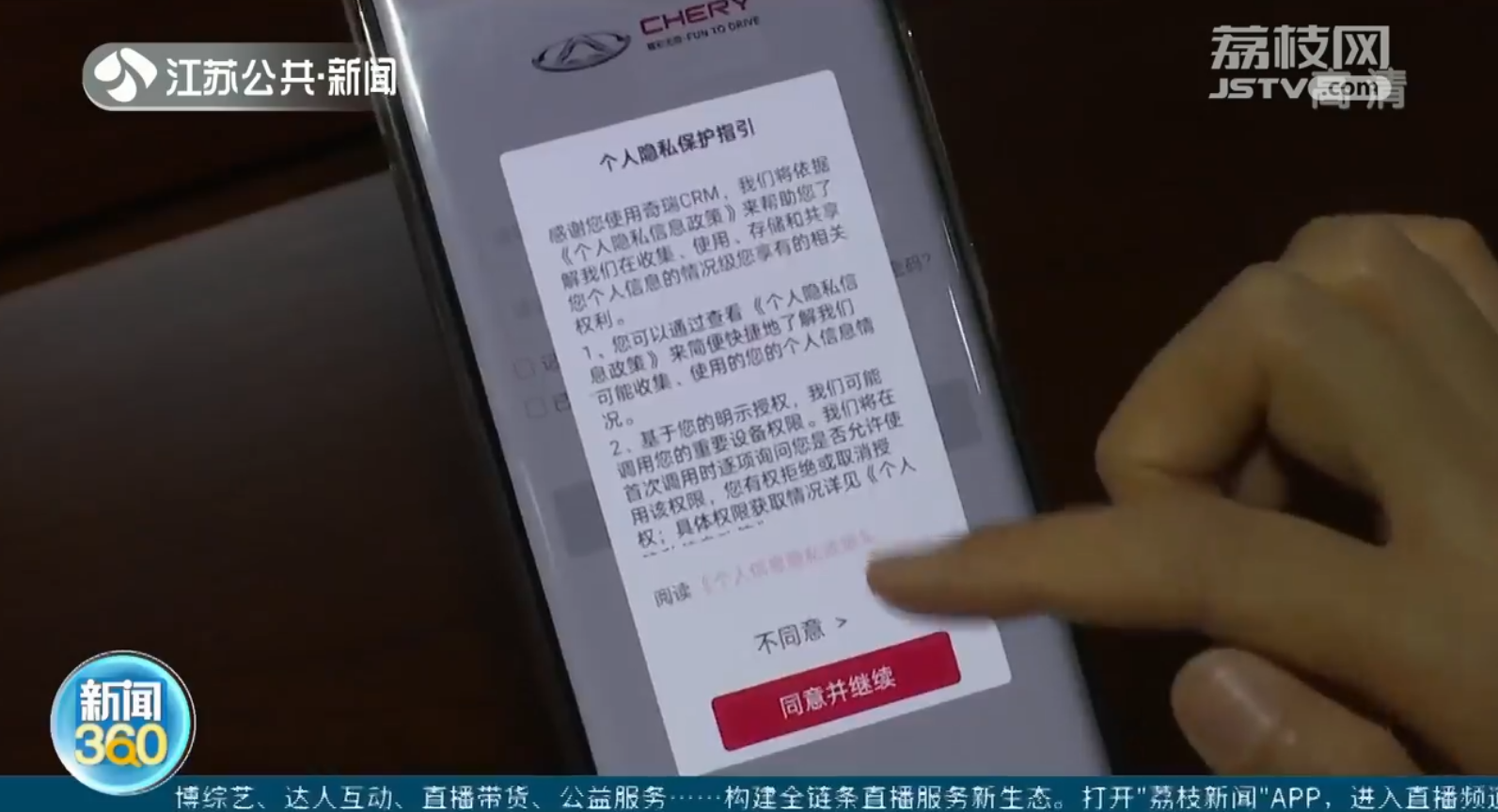
Seventh, link to third-party value-added services without providing any protection. New energy car companies hope to provide third-party value-added services for users through in-car software or related websites, and even hope that users can make profits in third-party consumption and shopping through these software or websites, which is actually the role of an online trading platform. however, it is stated that it is irresponsible for the service content of the third party, and the rights and obligations of such terms are obviously not equal. Changan, polar fox, polar krypton, Geely, ideal, SAIC GM Wuling, Tesla, Weima and Xiaopeng all have similar agreements.
8. the publication of a work by a user is a wide authorization, which damages the intellectual property rights of the user. The intellectual property rights of car companies should be protected, and the intellectual property rights of users should also be respected, while the agreements of BYD, Great Wall, Guangzhou Automobile Eian, polar fox, extreme krypton, ideal, Chery, SAIC GM Wuling and Xiaopeng, just because users publish works through in-car software or related websites, are regarded as authorizing unrestricted use by car companies and harming users' intellectual property rights.
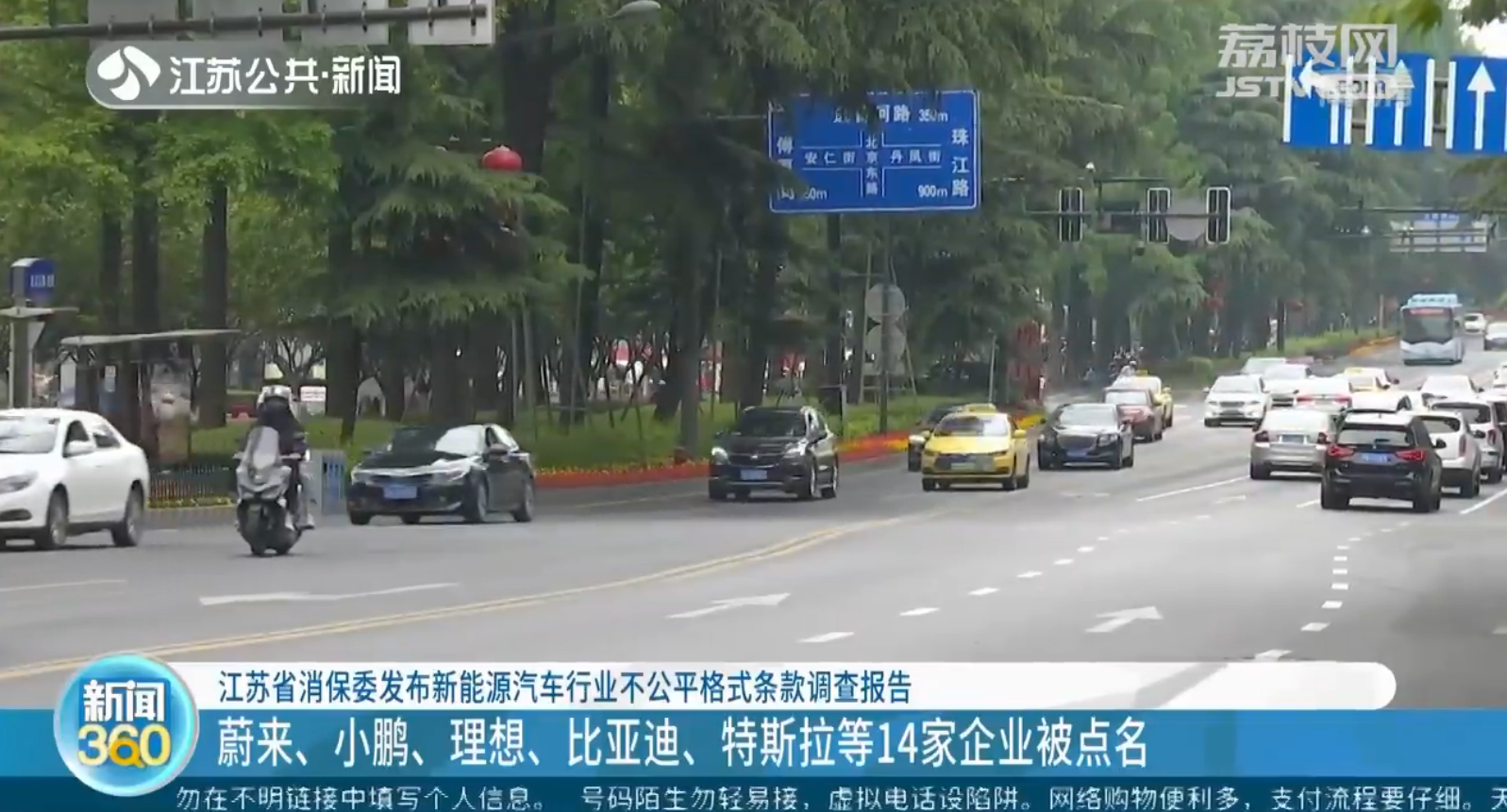
Ninth, the agreed jurisdiction only considers car companies, increasing the cost of safeguarding consumers' rights. In the survey, it is found that all 14 enterprises determine the jurisdiction court or arbitration through the unilateral format contract, and the chosen jurisdiction court or arbitration is the location of the car company, which is not determined through consultation with consumers, which substantially limits consumers' right of choice. increase the cost of safeguarding consumers' rights.
There is no legal basis to increase the burden on consumers and related people. According to the Civil Code, both parties to the contract should be liable for breach of contract to the other party for their own breach of contract, while the agreement between GAC Ean and NIO exempts itself from liability by way of agreement, and restricts consumers' right to raise objections and amend the terms. Increase the burden on consumers, and even increase the burden on third parties outside the contract.
The Jiangsu Consumer Protection Commission said that in the formulation of contracts for new energy vehicles, only their own convenience is generally considered, so that relatively vulnerable consumers are in the agreement to set up "routines", and their rights and interests are greatly reduced. I hope that all major car companies will be consumer-oriented, fully respect the legitimate rights and interests of consumers, rectify the above problems in a timely manner, and adhere to the car companies that do not change. Jiangsu Consumer Protection Commission will file a public interest lawsuit.
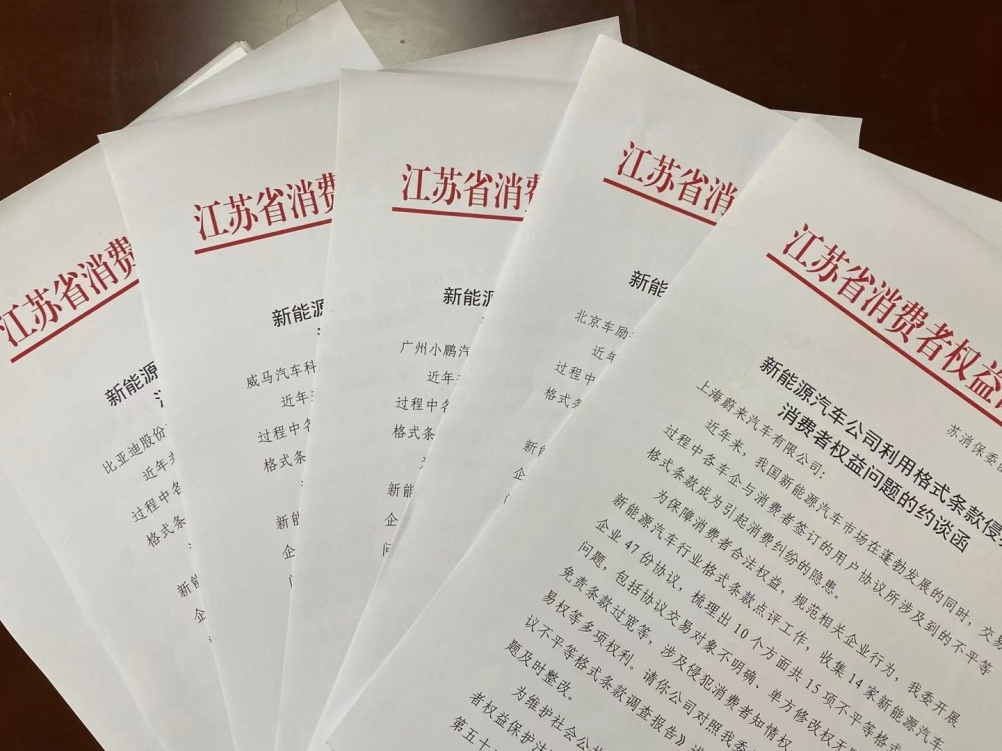
In fact, the Consumer Rights and interests Protection Law has long forbidden operators to make unfair and unreasonable provisions to consumers through standard terms and other means, but there are still some enterprises ignoring the laws and regulations to set up consumers. Take Xiaopeng Automobile as an example. According to the National Enterprise Credit Information publicity system, Beijing Xiaopeng Automobile sales and Service Co., Ltd. (hereinafter referred to as "Beijing Xiaopeng") infringed upon the rights and interests of consumers because of unfair contract terms. He was warned and fined 3000 yuan by the Chaoyang District Market Supervision Administration in Beijing. As for the reason for the penalty, Beijing Xiaopeng stipulated in the Xiaopeng Automobile purchase Agreement that "if the two parties do not resolve these disputes through consensus, either party has the right to submit the dispute to the Guangzhou Arbitration Commission for arbitration." In other words, if you buy a car in Beijing, if there is a product dispute, you need to go to the Guangzhou Arbitration Court thousands of miles away for arbitration.

Arbitration is not subject to regional jurisdiction, the two sides could have agreed to choose, but limited by the standard terms signed between Xiaopeng and consumers, consumers will only go to Guangzhou. In other words, if consumers want to protect their rights, even if they do not count the cost of time, food and accommodation, they will have to spend thousands of yuan on round-trip air tickets alone. Secondly, the Consumer Rights and interests Protection Law stipulates that disputes over consumer rights and interests can be resolved through complaints, arbitration, litigation and other means.
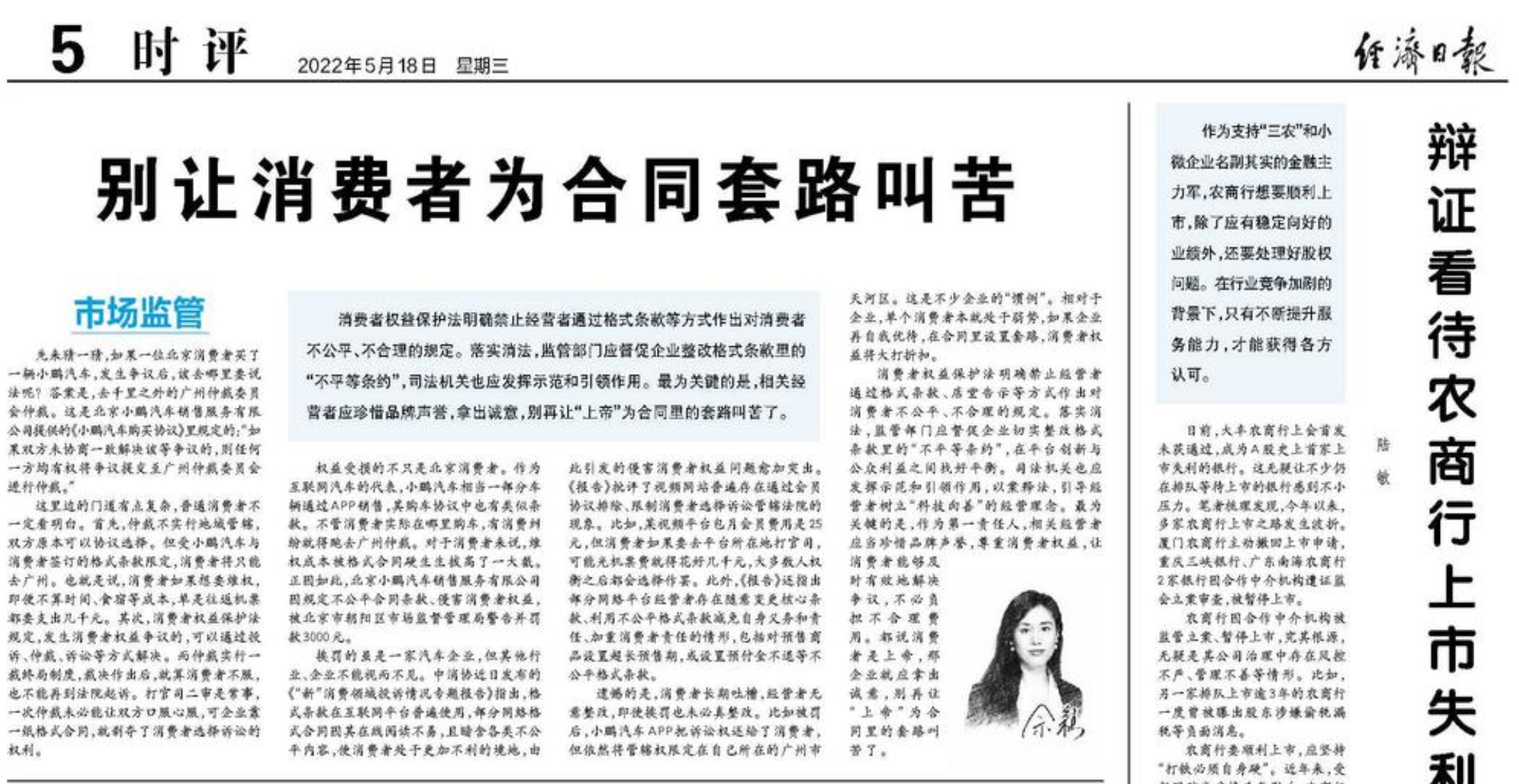
The Economic Daily (a comprehensive newspaper dominated by economic reports organized by the State Council and led and managed by the propaganda Department of Communist Party of China Central Committee) criticized: the Consumer Rights Protection Law explicitly forbids operators to make unfair and unreasonable provisions to consumers through format terms and other means. In order to implement the elimination law, the regulatory authorities should urge enterprises to rectify the "unequal treaties" in the standard terms, and the judiciary should also play an exemplary and leading role. The most important thing is that the relevant operators should cherish the brand reputation, show sincerity, and stop "God" complaining about the tricks in the contract.
Welcome to subscribe to the WeChat public account "Automotive Industry Focus" to get the first-hand insider information on the automotive industry and talk about things in the automotive circle. Welcome to break the news! WeChat ID autoWechat
Views: 0
*The comments in the above article only represent the author's personal views and do not represent the views and positions of this website. If you have more insights, please feel free to contribute and share.






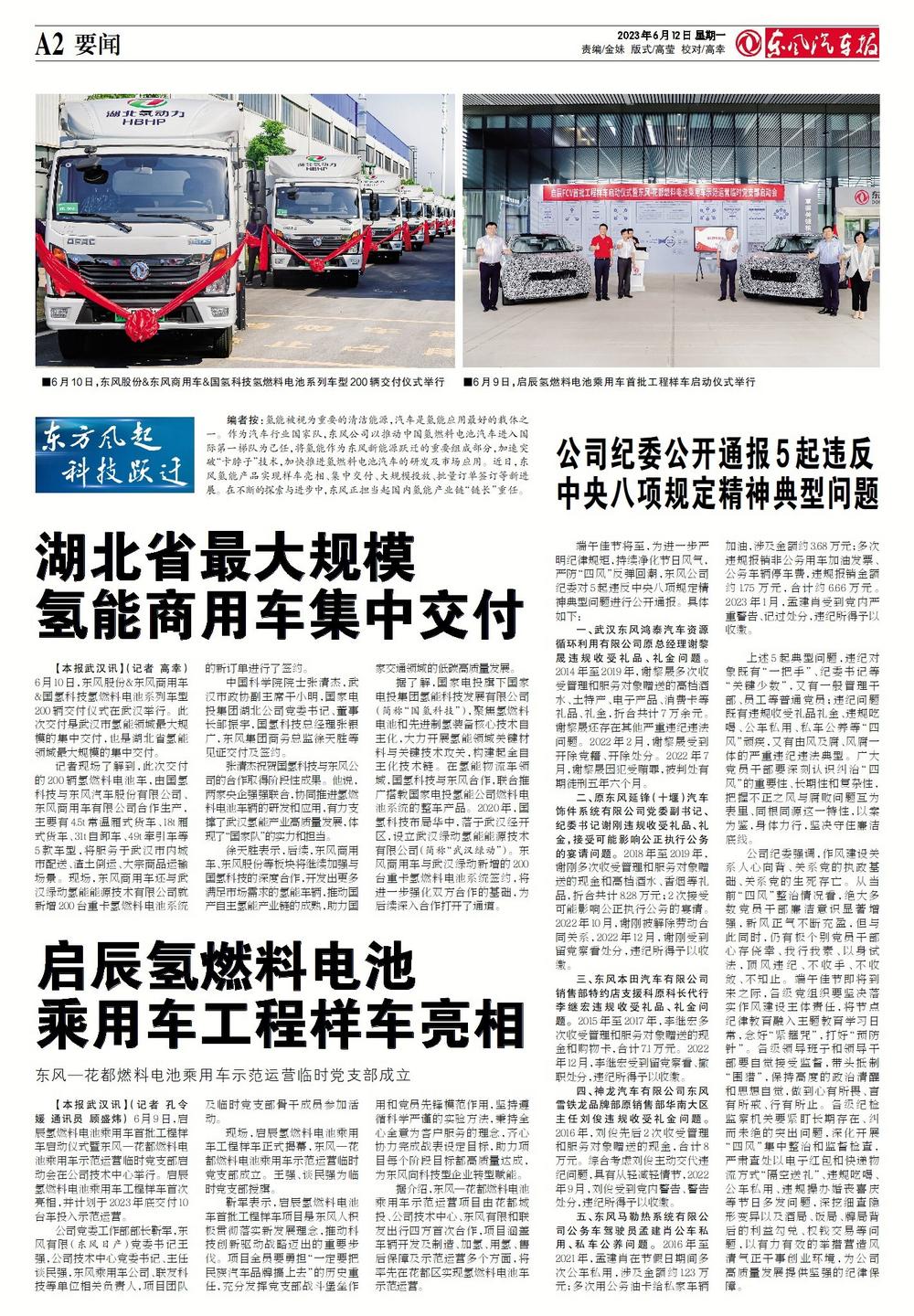


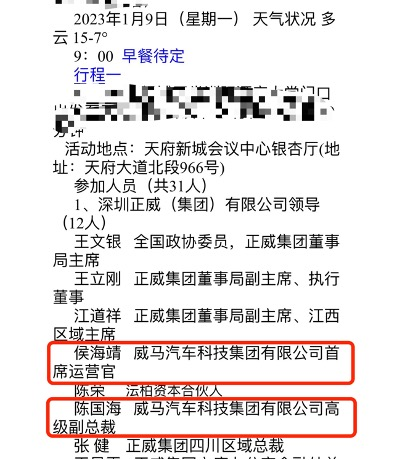

© 2024 AutoBeta.Net Tiger Media Company. All rights reserved.